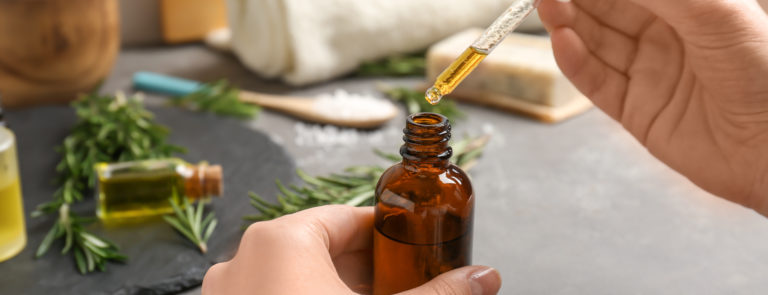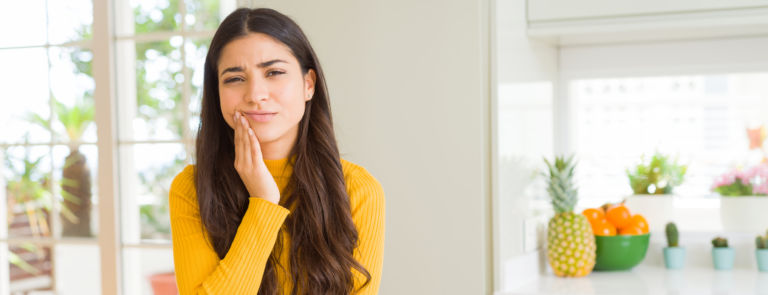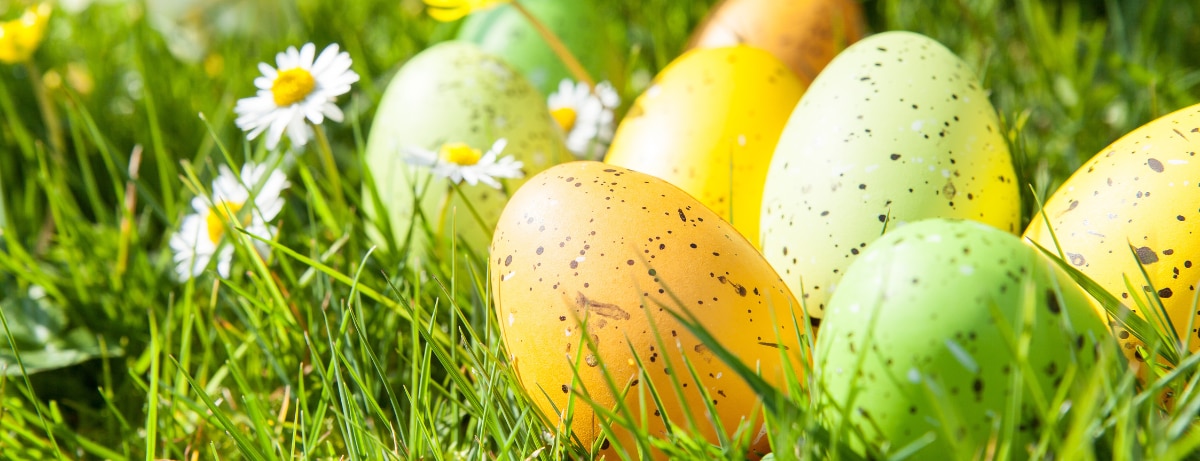15% off €25
9 things essential oils are great for

It’s thought that essential oils have been in use by humans since 18,000BC.1
However, you’d be forgiven for thinking they were the latest trend. Essential oils are everywhere these days, from our cosmetics to our humidifiers.
It’s undeniable that essential oils smell amazing. Whether you like floral, citrus, woody or musk scents, there’s an essential oil out there to satisfy your olfactory senses.
But what if essential oils could do more than just smell good?
#oilsforeverything has been hashtagged nearly 45,000 times on Instagram – but should we really be using them for everything?2
We take a look at some of the ways essential oils are used – and the evidence for whether they work.
1. Anxiety
There’s plenty of evidence that essential oils can help reduce feelings of anxiety and promote feelings of calm, comfort, reassurance and mental wellbeing.
Among the best essential oils for anxiety are lavender, bergamot, rose, jasmine, ylang ylang and frankincense.
Using essential oils in diffusers, oil burners, room sprays and linen sprays can offer relaxing benefits.
Alternatively, you could use essential oils to keep you feeling calm, in massage oils, or added to baths and body care products.
If you have a friend or loved one, you could try creating a homemade essential oil gift to share a little calm.
2. Sleep
Essential oils for sleep are an area of interest that has been steadily growing in the UK over the past five years.3
With insomnia thought to affect as many as 1 in 3 people in the UK,4 it’s no surprise that Brits are turning to natural solutions to help us regulate our sleeping pattern without having to resort to medication.
Following a systematic review of the studies available essential oils are thought to be a more convenient alternative for mild sleep disturbances.5
Try a few drops of lavender, marjoram, vanilla or cedarwood on the underside of your pillow.
You could also add a drop or two to a carrier oil or your usual hand lotion and give yourself a relaxing hand massage to unwind just before bed, before holding your cupped hands to your mouth and breathing deeply.
Handpicked content: Natural remedies to help you get to sleep
3. Hair support
While it’s true that the best thing for hair growth is time, certain essential oils could give your locks the support it needs, especially if your scalp is congested, flaky or dry.
According to a clinical study, applying a preparation of peppermint oil to the hair and scalp for 4 weeks could help hair to enter the ‘rapid anagen stage’ of the hair growth cycle.6
You could create your own DIY hair growth mask using half a mashed avocado, a tablespoon of olive oil and a few drops of peppermint oil. Pair your peppermint hair mask with massage, which is also great for supporting new hair growth.7
The refreshing effect you’ll feel from a peppermint hair mask comes from the menthol in the peppermint oil, which is responsible for getting the blood flowing to those hair follicles and supporting new growth.
Other great essential oils for hair growth include lavender8 and rosemary9. Remember, healthy hair grows at a rate of around ½ an inch per month.
Check out more essential oil beauty tips for beautiful skin and hair.
4. Eczema
It’s true that essential oils are natural, and humans have used them for thousands of years.
But they aren’t always the best option for delicate skin, and using essential oils for eczema is one such example.
The highly concentrated plant extracts in essential oils can irritate eczema-prone skin and essential oils for eczema should be avoided.10
Try coconut oil instead, as it’s mild and well-tolerated on most skins (unless you have a coconut allergy).
It’s best to follow the advice of your GP or dermatologist when it comes to eczema relief.
5. A cough
Inhaling certain essential oils might be able to offer support if you have a pesky cough.
Eucalyptus oil is a great essential oil for cough support as when inhaled from the bottle, on a cotton handkerchief or as part of a vapour or steam, it can help loosen mucus.
One study found that using a spray made from the essential oils of aromatic plants (including eucalyptus oil) can provide support when faced with minor upper respiratory issues.11
6. Skin
There are several essential oils which hold cleansing properties and can help support healthy skin.
Bergamot oil, tea tree oil, peppermint oil, vetiver oil and cinnamon oil are all useful natural remedies for acne, as well as other skin conditions.
Neroli essential oil is one of the best essential oils for skin. It’s nourishing and hydrating and has been shown to help soothe sensitive skin.12
Be careful, though – essential oils are very strong (their name comes from the fact that they contain the concentrated ‘essence’ of the plant) and they must be diluted before use.
Always dilute essential oils for skin in a carrier oil such as sweet almond oil, grapeseed oil, coconut oil, castor oil, wheatgerm oil or avocado oil before applying to the skin.
7. Labour
More and more women are seeking natural ways to prepare themselves for the process of giving birth, with aromatherapy a growing area of interest especially:
The NHS offer advice on aromatherapy as a natural coping mechanism during labour. They recommend the following:13
- Clary sage – to support labour and encourage regular contractions.
- Eucalyptus – for pain management and nasal congestion.
- Frankincense – to help with high anxiety.
- Peppermint – to help with nausea and vomiting.14
8. Balancing stress
If you’re looking for a bit of balance during your monthly cycle, then it’s time to look at essential oils.
Some essential oils contain phytoestrogens which mimic the female hormone oestrogen.15
That’s why they could support hormonal balance in women, from periods to the menopause.
One of the best essential oils for hormone balance is clary sage. It can help regulate stress hormones in the body, which wreak havoc on hormonal harmony.
Apply it to pulse points, heat it in an oil burner or inhale from a handkerchief.
9. Pain
Taking essential oils for pain might seem unlikely to offer any real benefit.
However, some essential oils really do seem to hold analgesic (pain relieving) properties.
Aromatherapy is an increasingly popular way to manage mild to moderate pain such as headaches, stomach cramps, as well as chronic pain such as neck, back and knee pain.16
The most commonly used essential oils for pain management aromatherapy are lavender, eucalyptus, rosemary, chamomile, and peppermint.
Last updated: 19 October 2021
- The Aromatherapy Handbook: The Secret Healing Power Of Essential Oils Daniele Ryman (1984) Random House
- https://www.instagram.com/explore/tags/oilsforeverything/?hl=en
- https://trends.google.com/trends/explore
- https://sleepcouncil.org.uk/advice-support/sleep-hub/sleep-disorders/insomnia/
- https://www.ncbi.nlm.nih.gov/books/NBK246974/
- https://www.ncbi.nlm.nih.gov/pmc/articles/PMC4289931/
- https://www.ncbi.nlm.nih.gov/pmc/articles/PMC4740347/
- https://www.ncbi.nlm.nih.gov/pmc/articles/PMC4843973/
- https://tisserandinstitute.org/learn-more/rosemary-essential-oil-hair-growth-promotion/
- https://nationaleczema.org/alternative-treatments-dr-shi/
- https://www.ncbi.nlm.nih.gov/pmc/articles/PMC2967840/
- https://www.ncbi.nlm.nih.gov/pmc/articles/PMC6392855/
- https://www.guysandstthomas.nhs.uk/resources/patient-information/maternity/coping-methods-and-pain-relief-in-labour.pdf
- https://www.ncbi.nlm.nih.gov/pmc/articles/PMC6428160/
- https://www.bcpp.org/resource/phytoestrogens/
- https://pubmed.ncbi.nlm.nih.gov/24802524/



